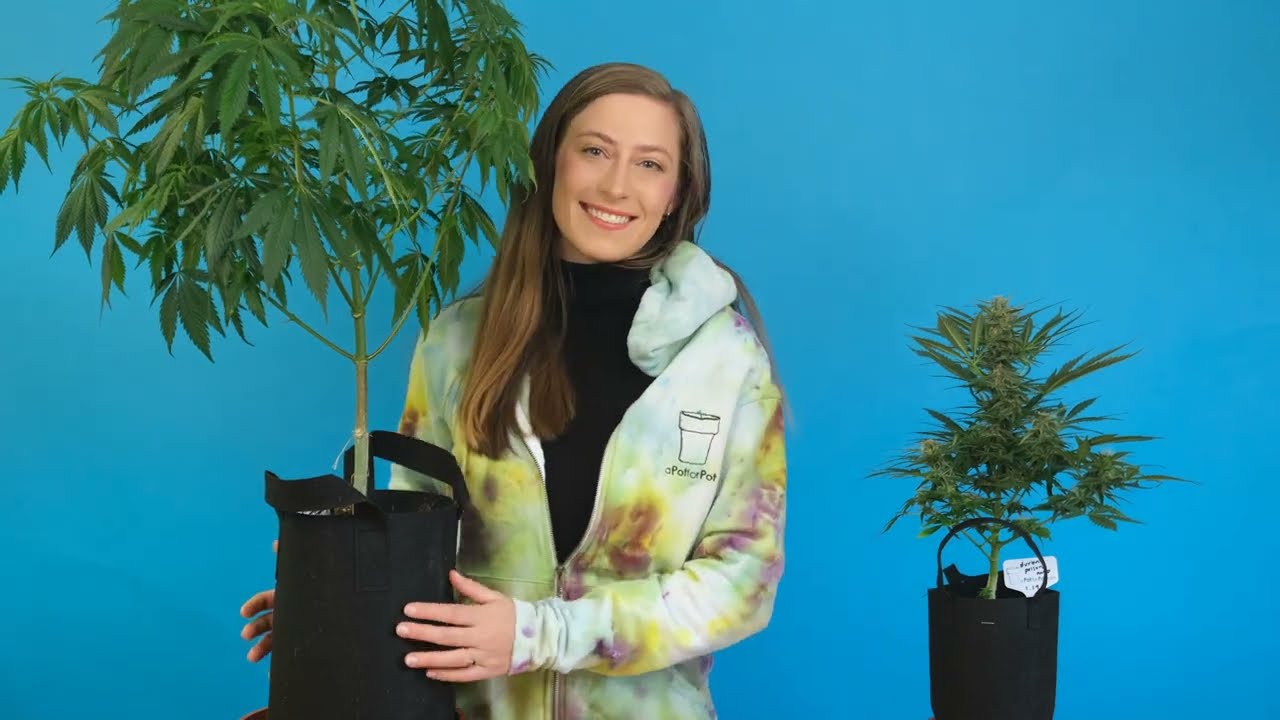1. Benefits of Growing Cannabis Indoors at Home
Growing cannabis indoors offers a variety of advantages not found when growing it outdoors. One of the most prominent benefits is the control of the environment. By hiding the plant from inclement weather and external pests, growers can regulate the temperature, humidity, and lighting according to the specific needs of the plants, resulting in healthier growth and a superior quality harvest.
Advantages of Indoor Growing
- Privacy and security: Growing at home allows you to keep the process and plants out of public view, which is essential in regions where cannabis can be a sensitive topic.
- Year-round production: Unlike outdoor growing, where the seasons limit growth, indoor growing allows you to produce cannabis at any time of the year.
- Lower risk of contaminants: By growing indoors, the risk of contamination from pesticides or herbicides used on nearby crops is minimized.
In addition, growing cannabis indoors offers the possibility of using advanced technology to optimize growth. Tools such as automatic irrigation systems, growth-specific LED lighting, and nutrient monitors allow growers to maximize the yield and quality of their plants. These methods not only improve production but also encourage a sustainable and environmentally friendly approach to cannabis cultivation.
2. Essential Equipment for Growing Cannabis Indoors
Growing cannabis indoors requires an upfront investment in essential equipment that ensures an optimal environment for plant growth. These elements are essential to maximize production and ensure plant health throughout the growth cycle. Listed below are the most important pieces of equipment that every grower should consider.
1. Lighting System
Light is one of the most critical factors in cannabis cultivation. A proper lighting system not only helps in photosynthesis, but also influences the growth and quality of flowers. There are different types of grow lights, such as:
- LED Lights: Efficient and low energy consumption.
- HPS Lights: Widely used for their high intensity and performance.
- CFL Lights: Ideal for vegetative growth and easy to use.
2. Temperature and Humidity Control
Maintaining a controlled environment is crucial for indoor growing. Ventilation, heating and humidification systems must be adequate to regulate temperature and humidity. A thermohygrometer is a useful tool for monitoring these conditions. Growers should consider installing:
- Air extractor: To eliminate hot air and keep circulation cool.
- Heating: To provide warmth when needed.
- Dehumidifiers: To reduce the humidity level and prevent pests.
3. Pots and Substrates
Choosing the right pots and substrates is essential for good root development and nutrient uptake. There are several options, depending on the cultivation technique chosen:
- Fabric pots: They allow for better aeration and drainage.
- Organic substrates: They provide natural nutrients.
- Hydroponics: A system that does not use soil, ideal for maximizing space.
3. Step-by-Step Guide to Setting Up Your Indoor Cannabis Garden
Creating an indoor cannabis garden can be a rewarding experience and, if done correctly, can result in a bountiful, high-quality harvest. Below, we offer you a step-by-step guide so that you can start your cannabis cultivation at home.
1. Choose the Right Space
The first step is to identify a suitable space for your indoor garden. This can be a room, a closet, or a small greenhouse. Make sure the area has:
- Good ventilation: This will help maintain a proper temperature and prevent mold.
- Access to electricity: For grow lights and fans.
- Light control: Make sure you can cover or block outside light.
2. Equipment Needed
Once you have the space, it’s essential to gather the necessary equipment including:
- Grow lights: LED or HID are the most common and effective.
- Fans: To maintain air circulation and control temperature.
- Irrigation systems: Consider a drip irrigation system to make the process easier.
3. Choose the Substrate
Finally, the choice of substrate is crucial. You can opt for organic soil, coco or hydroponic systems. Each option has its pros and cons, so research which one best suits your growing needs and abilities.
4. Tips for Maintaining Optimal Growing Conditions in Indoor Cannabis
To achieve optimal growth of your cannabis plants indoors, it is crucial to pay attention to several environmental factors. By implementing the following practices, you will be able to maximize the health and production of your plants.
1. Temperature and Humidity Control
Temperature and humidity are two of the most important elements in growing cannabis indoors. Keep the temperature between 20-26 °C during the day and a slight drop at night. Use a hygrometer to measure humidity, ideally between 40% and 60%. Consider the following tools:
- Fans to improve air circulation
- Dehumidifiers or humidifiers as needed
2. Adequate Lighting
Lighting plays a critical role in the growth of cannabis. Use LED or HPS lights suitable for your grow space. It is vital to ensure that your plants receive between 12-18 hours of light, depending on the stage of growth, and to adjust the height of the lights to prevent burns.
3. Nutrients and Watering
Provide your plants with a balanced nutrient formula. Consider a watering regimen that allows for proper drainage and avoids overwatering, which could cause root problems. A good tip is to use the substrate weight technique to know when to water.
By following these basic tips, you’ll be well on your way to successfully growing cannabis indoors, thus ensuring an environment conducive to the healthy growth of your plants.
5. Common Challenges and Solutions in Growing Cannabis Indoors
Growing cannabis indoors presents a number of common challenges that growers must address in order to achieve successful harvests. Some of the most frequent difficulties include humidity control, space management, proper lighting, and pest prevention. Effective solutions for each of these problems are presented below.
1. Humidity Control
Maintaining optimal humidity levels is crucial for healthy plant growth. High humidity can encourage mold and disease, while levels that are too low can stress plants. To control humidity, consider the following:
- Use dehumidifiers in humid climates.
- Install humidifiers if the air is too dry.
- Regularly monitor humidity levels with a hygrometer.
2. Space Management
In indoor grows, space can be limited, which can affect plant growth. To maximize the growing area, several strategies can be implemented:
- Use racking or vertical farming systems.
- Choose cannabis strains that are more compact or short-growing.
- Plan an efficient grow design that makes it easy to access plants.
3. Adequate Lighting
Insufficient or excessive lighting can affect the growth and production of cannabinoids in cannabis plants. It is essential to select the right type of lights and adjust their intensity. Here are a few solutions:
- Use full-spectrum LEDs to mimic sunlight.
- Adjust the height of the lights according to the growth phase of the plants.
- Set a suitable light cycle (18/6 for vegetatives and 12/12 for flowering).
4. Pest Prevention
Pests are a common problem in growing cannabis indoors, and they can ruin an entire harvest if not handled correctly. To prevent pests, consider implementing the following practices:
- Maintain a clean and debris-free environment.
- Use sticky traps to monitor pests.
- Opt for organic pesticides and biological control methods.


